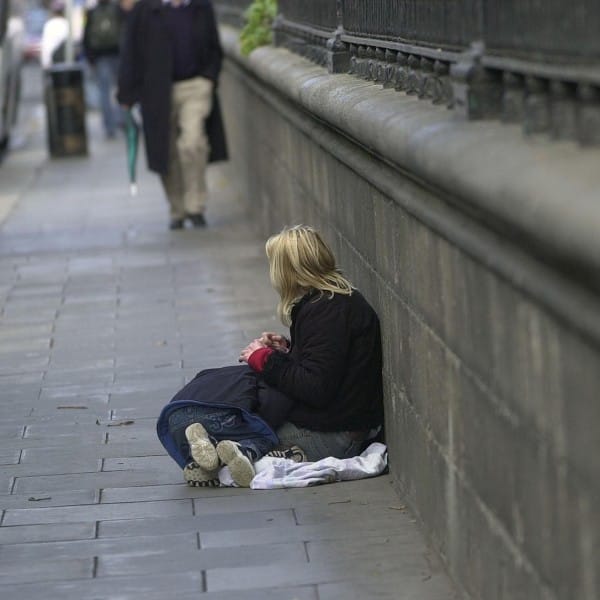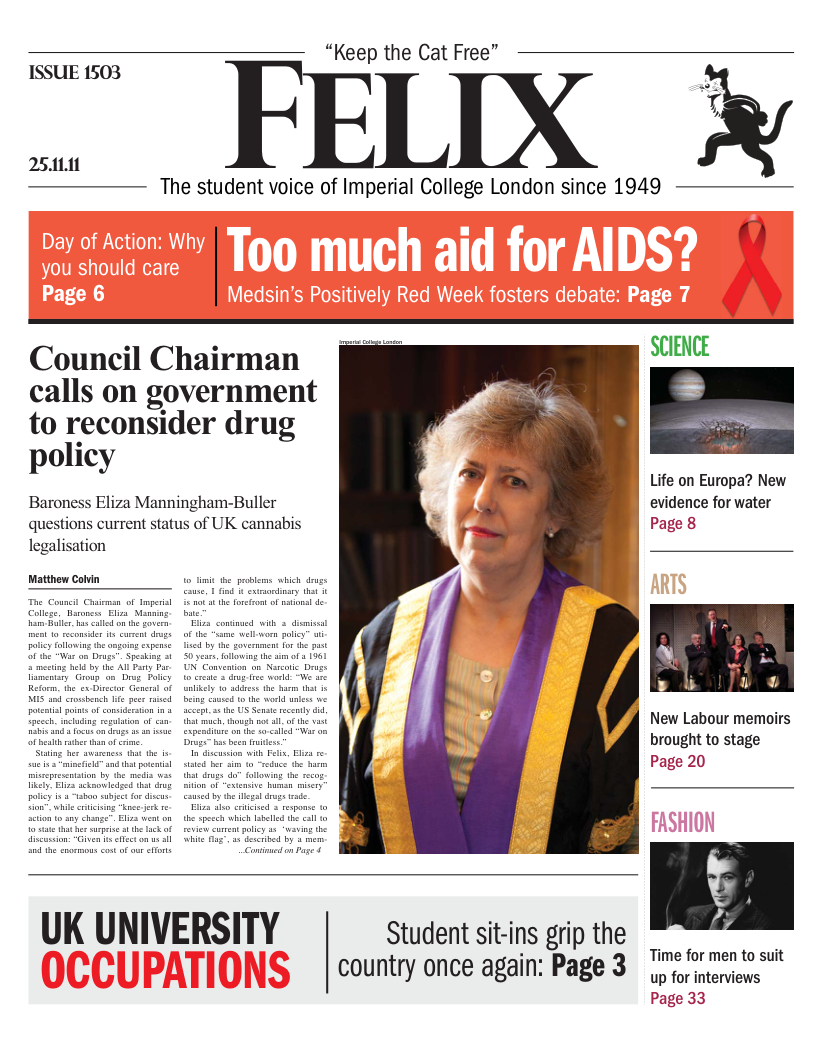Poverty should occupy your mind
Why poverty is an issue that extends far beyond simple generalisations

When a friend came from home to visit me this weekend, the Occupy protest at St Paul’s Cathedral was an obvious stop on the tourist trail. Whether you agree with the protestors or not, the creation of a functioning tent civilisation with its own library, media centre and even a ‘university’ is really quite impressive. But you don’t need to see what they’ve done to the City of London landscape to see the impact they’ve had on the political arena – our economy and society are under the microscope like never before in our generation. And as the long suffering Felix Comment editors know only too well, the debate has been raging fiercely in these pages.
The Occupy legitimacy debate has been going on for more than long enough. But one thing that has come out of it, and other related pieces in this paper, is the prevalence of a certain view among some students in this college. This isn’t a question of the standard right/left divide – there are perfectly sensible people and arguments on either side – it’s a question of attitude, of outlook. Your political opinions should be formed by an honest look at the world around you and by thinking how best it should, and realistically can, be organised. But in addressing the issue of poverty and why it exists, certain commenters have instead chosen to justify and defend their own social positions at all cost, as a default, regardless of the consequences and self-delusions involved.
Without naming names, we were here told that poverty is “the appalling situation that ten abysmal years of serially incompetent socialist Labour government has created”. Which is curious, because I recall poverty existing before 1997. But more fundamentally this betrays an instinct to blame first and think later, if at all. The world is simply more complicated than that.
To be poor is to face challenges beyond what most of us are used to. To rise above them is laudable but it is all too rare
Most of us, myself included, have very little experience of what it is like to live below the poverty line in the UK. I have always wanted to believe that you can achieve anything if you work hard enough at it, and in my own life I have found this to be fairly true. And surely if you work hard you should enjoy the fruits of that labour? Bankers work bloody hard and get duly compensated for it. The problem is this: they aren’t the only ones working hard. Few Imperial students will have to know what it is to wake up early to take the bus to work because you can’t afford the tube. Surely that too is hard work. Few of us will know what it is to go to a school where we are branded collectively as failures, where we are only ever expected to achieve a few GCSE passes and feel the overwhelming pressure to simply comply. For most of us, the road to success has been clear and defined – we go to good schools, get spoon fed our A Levels and get into a great university. Of course this takes hard work along the way but it is a clear and well-trodden path. Just how open is this path to the 14 year old in a failing comprehensive? That 38% of students here were privately educated should give you some idea.
To be poor is to face challenges beyond what most of us are used to. To rise above them is laudable but it is all too rare. There are undoubtedly lazy people in this world who earn very little and hard working people who earn a great deal but to infer that those who are poor must therefore deserve it is a failure of understanding.
Poverty is a complex issue with no easy solution. But simply laying the blame at the feet of feckless individuals and an overgenerous government is unhelpful, lazy and cruel. Where exactly poverty’s “solution” will come from is still a subject of much debate, although it’s clear that it won’t necessarily come from the left (New Labour showed pretty well that simply throwing money at poverty won’t make it go away). But until we face up to the realities of the challenges faced by the poor in this country, no meaningful debate can be had.







